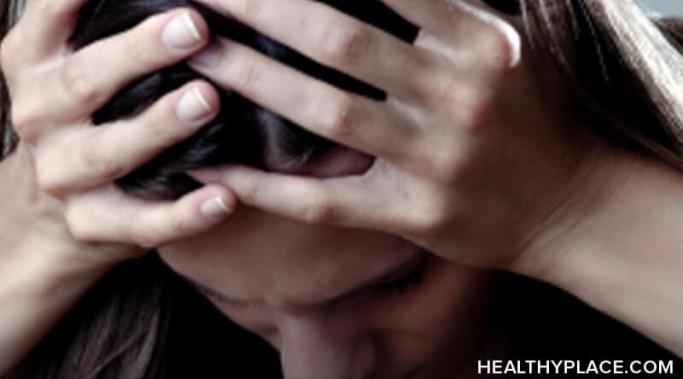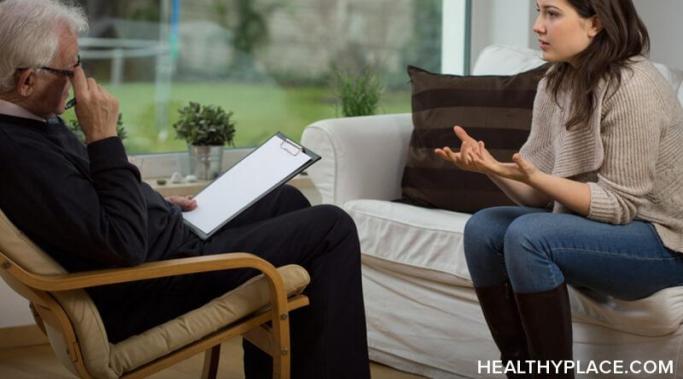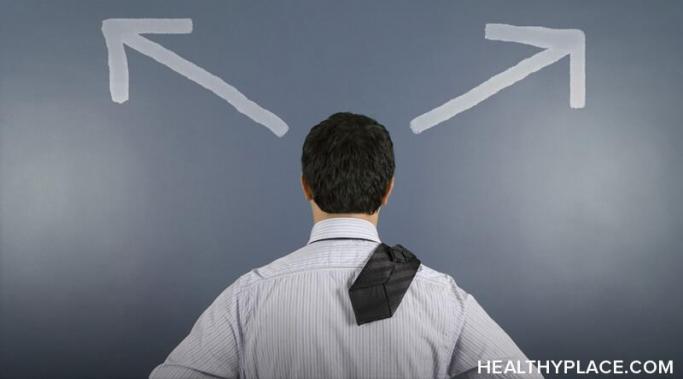Blogs
Mental health crises can happen anywhere at any moment, such as in a public place. Time and time again, I've seen those public moments captured in photos and videos online, turning a moment of pain into a show that people seem to feel entitled to gawk at and criticize. This needs to stop because mental health crises are not spectacles. Making them into such is stigmatizing and potentially harmful to the individual struggling.
Parenting anxiety doesn't end when a child goes off to college. In fact, experiencing anxiety about college-age kids (young adults) is common. I've had many conversations recently about worries and anxiety around kids going off to college, and I just dropped off my own son at his school for his freshman year. Here's a look at why sending a young adult child can cause anxiety and how not to be consumed with worry despite all of the causes.
Having a well-crafted set of life goals helps me on my journey to build self-esteem, but it's the baby steps that lead to those goals that make me feel successful. Completing a life goal's final steps may be years away, and focusing on that can be detrimental to healthy self-esteem. Changing my focus to the baby steps I take improved my self-esteem.
I’m the kind of person that has a lot of hobbies. As such, I’m constantly coming up with ideas for creative projects related to those hobbies. The amount that I’ve been able to devote to those projects because of my anxiety, however, is nowhere near what I sometimes envision it to be. Oftentimes I am guilty of trying to do too many things at one time, and I need to be better about that.
As a young woman, I am unfortunately no stranger to crude—and sometimes coercive—innuendos aimed in my direction. Like countless other women, I have been taught to use car keys as weapons of self-defense, and I know all the tactics designed to repel an attacker. However, not until I was sexually assaulted in 2017 did I recognize the full impact of this type of violation and the residual trauma it causes. Nor was I ready for how this would further exacerbate and complicate my eating disorder. But three years later, the truth remains: my eating disorder makes it difficult to heal from sexual assault.
In all of its forms, grief is excruciating, but surprise-grief is the worst of all; and the "surprise" of a loved one's death by suicide can cause you to wonder if you, yourself, will be able to survive. There are many factors, such as your relationship to the person or your mental health, that influence how you react and cope. (Note: This post contains a trigger warning.)
If you know someone who is living with a mental illness, such as dissociative identity disorder (DID), you may hear the word “grounding” used in regards to managing the condition. What does this mean, and how does it impact those living with DID?
Eating disorders during pregnancy are serious. When I found I was pregnant with my son over 10 years ago, I was still firmly in the grip of my eating disorder. I had what was known as eating disorder not otherwise specified (EDNOS), now referred to as other specified feeding or eating disorder (OSFED). As my doctor explained it, this is a name used to describe people who did not categorically check all the boxes of anorexia nervosa or bulimia, but still had a high-risk eating disorder.
Therapy has been my number one tool in my recovery, but every now and again, my therapist is wrong about something, and it freaks me out. I've had several therapists over the years, and in the past, when a therapist misunderstood something I said or made an assumption that was incorrect, I had no idea how to respond. I felt ignored, wrong, and bad, and I had no idea how to say any of this to them. But it doesn't have to be that way. It is possible to speak up when you're being misunderstood.
When you are feeling down, it can be easy to act in a way that represents how you feel. Unfortunately, doing this only prolongs the negative emotion. However, a technique that I find to be very interesting and valuable is called "opposite action." This post will teach you about the benefits of opposite action for mood disorders and how to practice it.









